Float design celebrates Felician Sisters' 150 years of ministry in North America; Polish-American, Catholic heritage on full display
WARREN — For one afternoon, Warren became a little Warsaw.
Hundreds of proud Polish-Americans marched down Common Road in Warren on Aug. 24, celebrating all things Polish at the 2024 Polish Day Parade.
The annual parade, now in Warren for its third year after initially starting in Hamtramck in 1977, traces its roots to local Polish organizations marching in support of the Solidarity Movement in Poland, which resisted the totalitarian communist government.
Today, the Polish Parade is a celebration of Polish heritage and faith, with Polish music, dancers, flags and all sorts of Polonia elements on display.
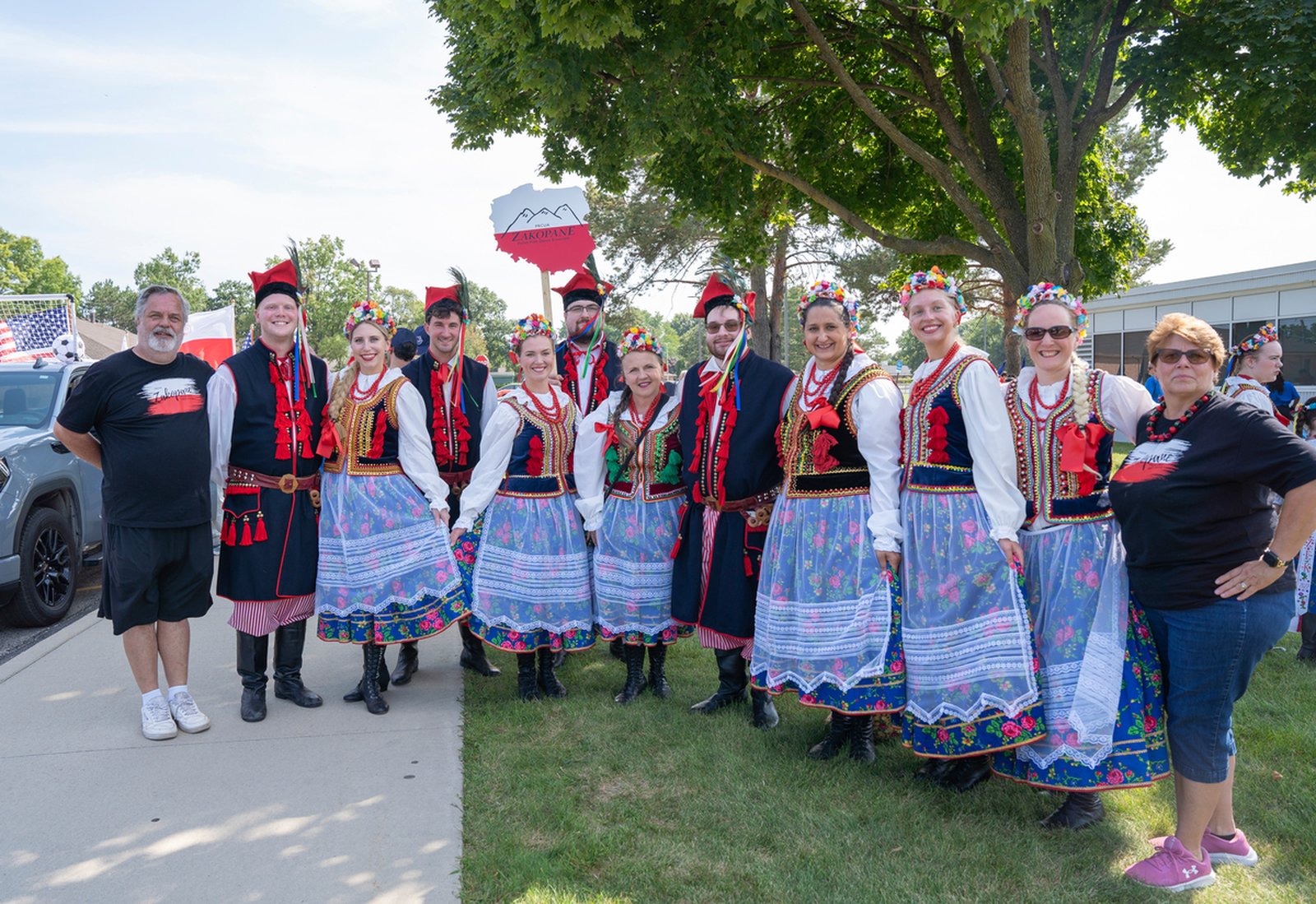
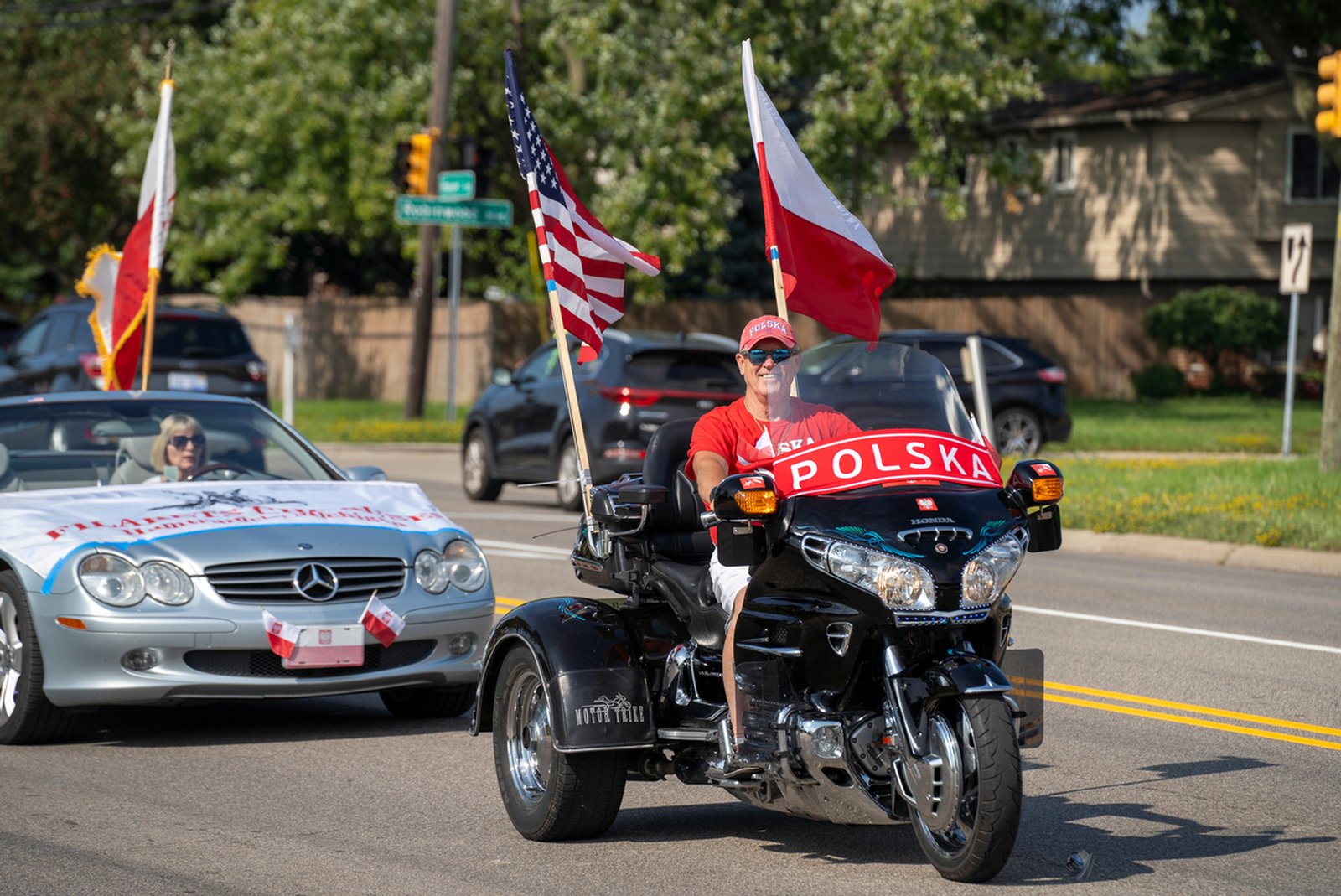
The parade is organized the Polish-American Congress – Michigan Division, a collection of more than 100 Polish cultural organizations who strive to preserve Polonia culture in the area.
“This year, we are celebrating outstanding Polish women with our main float,” Ann Bankowski, a past president of the Polish-American Congress – Michigan Division and a member of the group’s parade committee, told Detroit Catholic. “We have selected six women on this very special float built by the Parade Company, which (also organizes Detroit's) Thanksgiving Day Parade. One of the main people or groups we are celebrating is the Felician Sisters. It’s their 150th anniversary of coming to America to serve the Polish immigrant population, and they have prospered and grown in 150 years.”
Seven members of the Livonia-based Congregation of Sisters of St. Felix of Cantalice Third Order Regular of St. Francis of Assisi — the formal name for the Felician Sisters — joined in the parade, riding in two cars and waving red and white Polish flags while being cheered on by parade spectators.
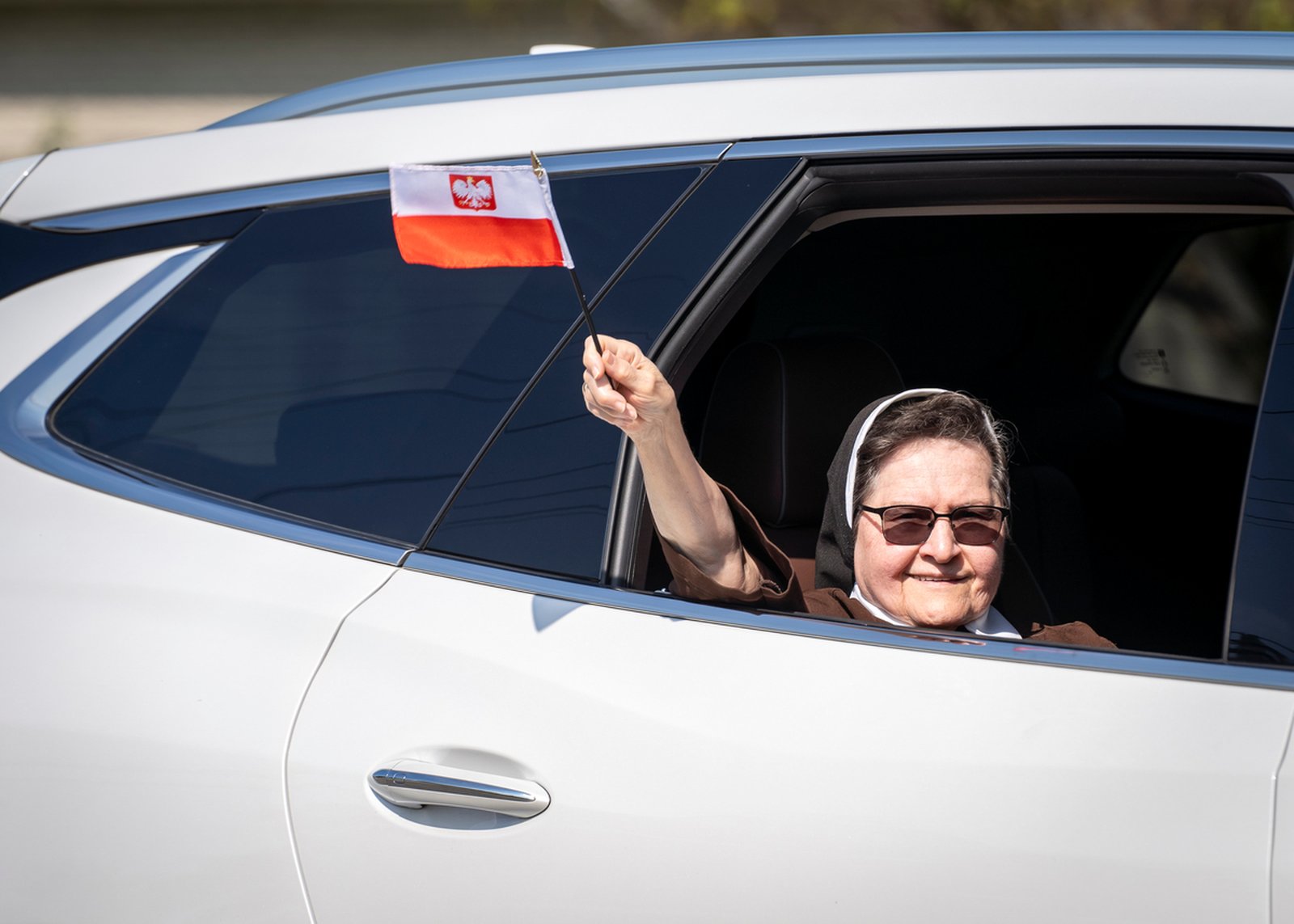
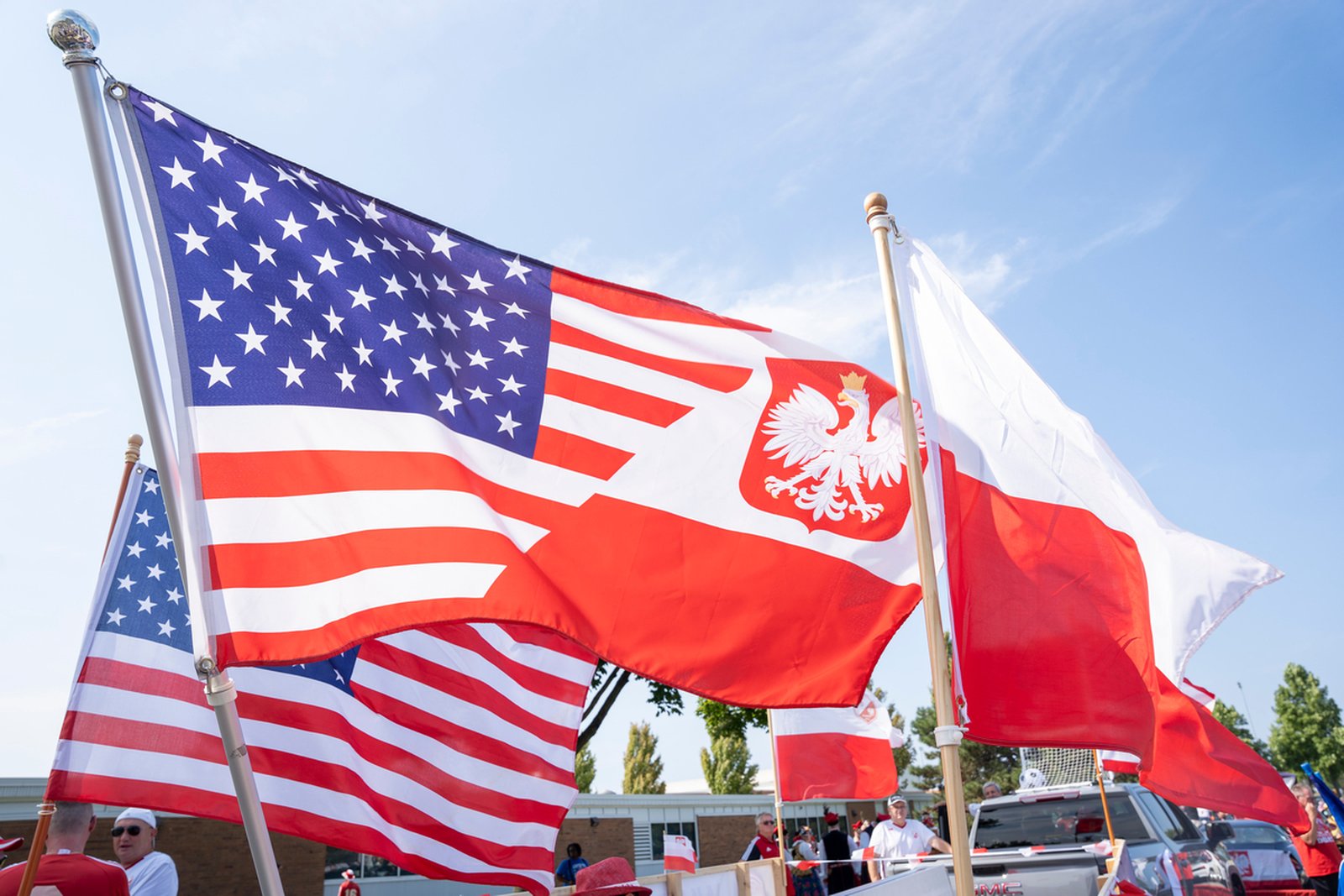
Sr. Nancy Marie Jamroz, CSSF, has been a Felician for 65 years and said participating in the Polish Day Parade was the perfect way to celebrate all the ways the Felicians have been blessed by and for the people of God in southeast Michigan, particularly the Polonia community that was emerging in Detroit.
“The sisters initially came to Wisconsin when they arrived in America 150 years ago and stayed for about 20 years,” Sr. Jamroz told Detroit Catholic. “Then Fr. Jozef Dabrowski (founder of SS. Cyril and Methodius Seminary in Detroit), invited us to come to Detroit because we’d have more access to transportation and could move right down the street from the Polish seminary. We found it much more convenient to spread across the United States and North America from Detroit.”
Other groups who took part in the parade celebrated the artistic side of Polish heritage.
The American Polish Century Club has been around since 1961, celebrating Polish culture by organizing community events and festivals honoring Polish and Catholic values, beginning every meeting with prayers in both English and Polish.
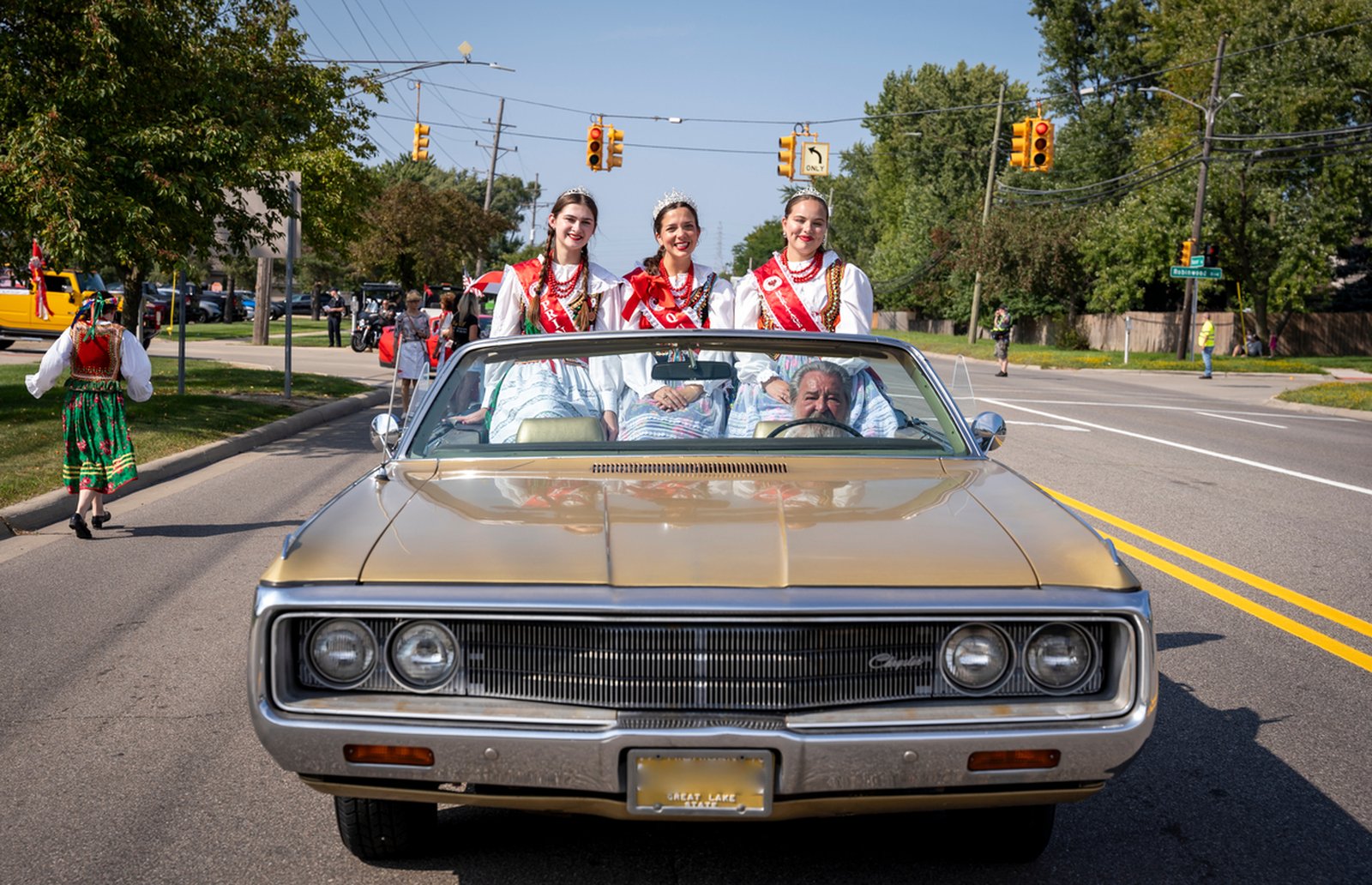
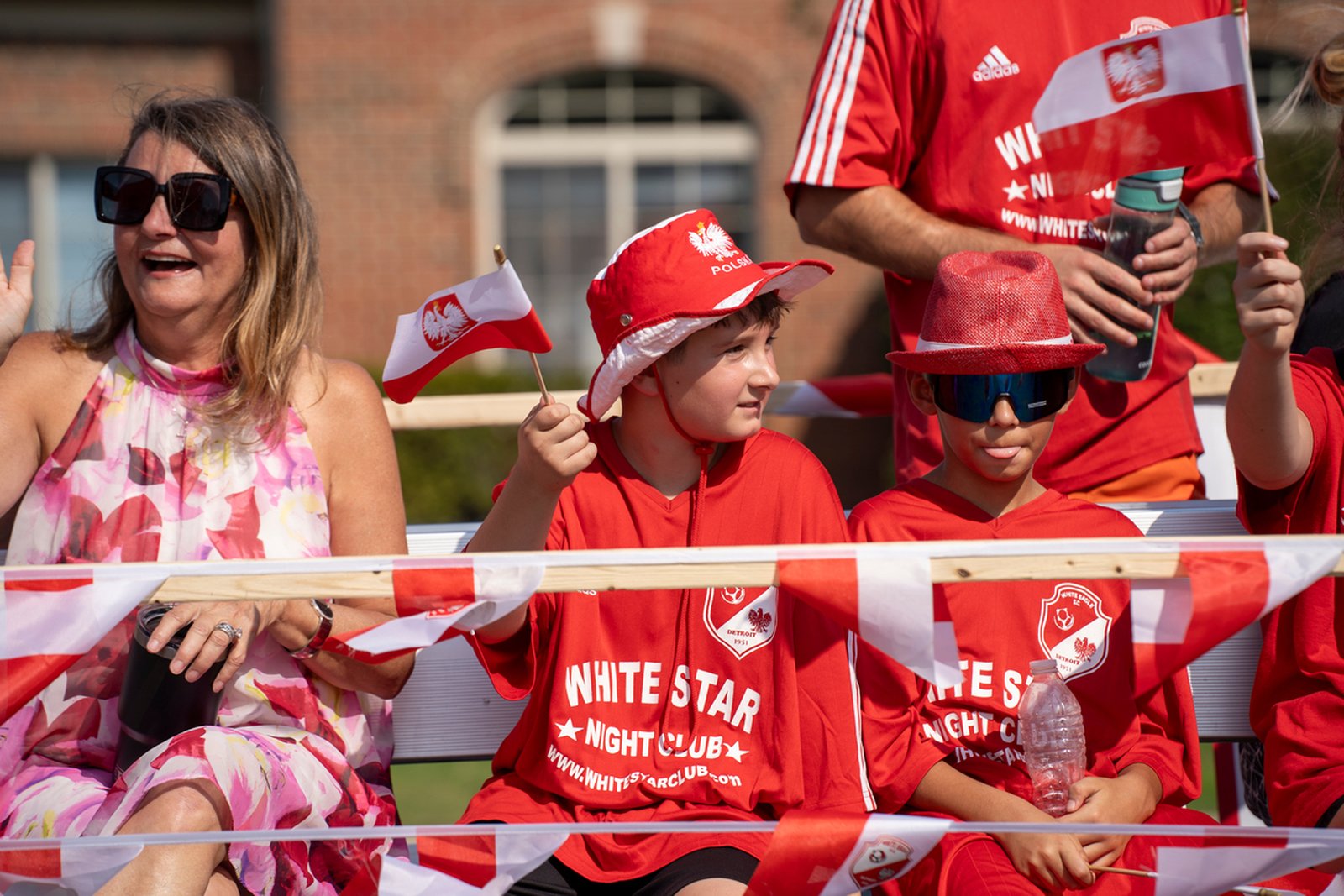
Lucy Bemiss, who represented the group as the American Polish Century Heritage Queen, shared why organizations like the American Polish Century Club are integral to preserving a Polish cultural identity in the United States today.
“It’s so important that we hang on to our roots,” Bemiss said. “Although we do live in America and are a bit of a melting pot, it is so beautiful that we have the opportunity to see and learn from so many different beautiful cultures.
“God created us all so uniquely and so perfectly, so I love being able to share my heritage with people and invite others to see our customs and religious traditions,” Bemiss added. “It’s something unique God specifically gave us that we should all keep celebrating, because being different is what makes our world beautiful.”
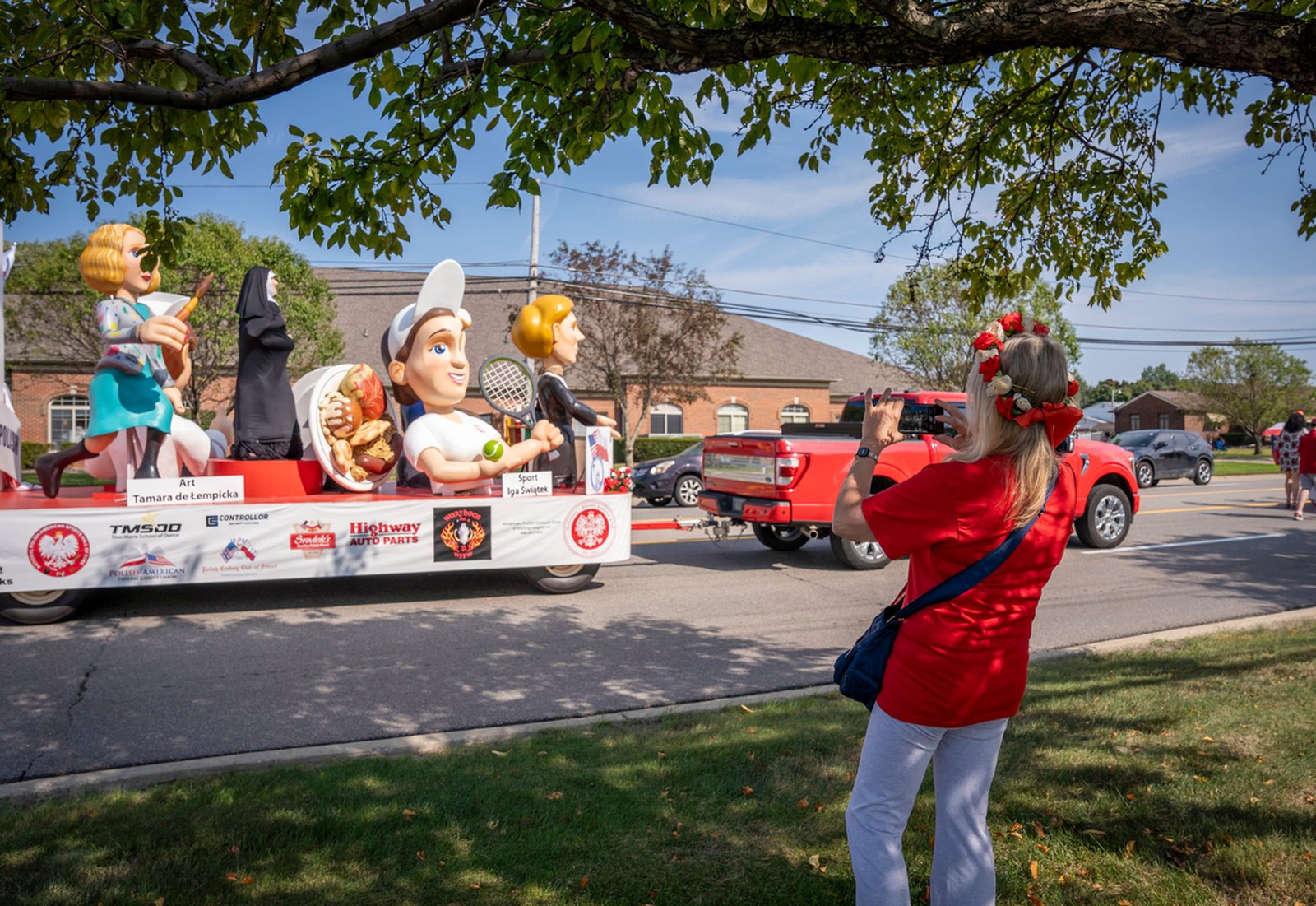
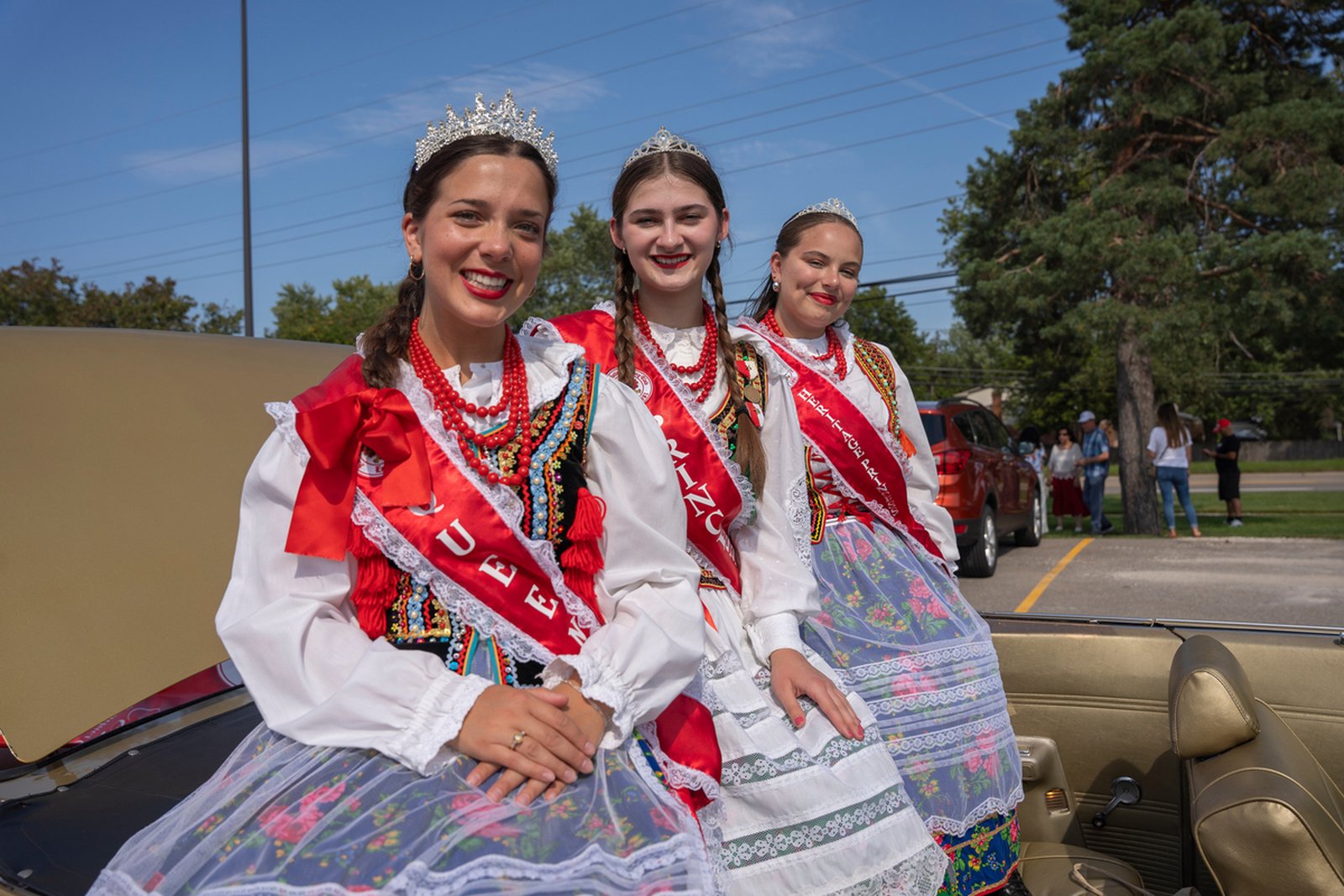
Bemiss is also a member of the Zakopane Dancers, who also had a colorful presence at the parade. Dancers dressed in traditional Krakowiak costumes, the national costume of Poland, including ladies wearing flower-print skits and gentlemen wearing long, dark tunics with red and white striped pants.
The Zakopane Dancers are part of the Polish Roman Catholic Union of America, the oldest Polish fraternal society in the United States, just turning 152 years old.
Colleen Bonkowski, director of the Zakopane Dancers, and Tom Lisiecki, the group’s choreography teacher, said dance has always played a pivotal role in preserving Polish culture, with multiple generations within a family learning Polish dance as a way to lay claim to their Polish identity.
“The language is hard enough to learn, so I think dance is something that is more accessible for people to grasp,” Lisiecki said. “I got into Polish dance when I was 5 years old; my mom threw me in there, and it was how we celebrated our Polish heritage."
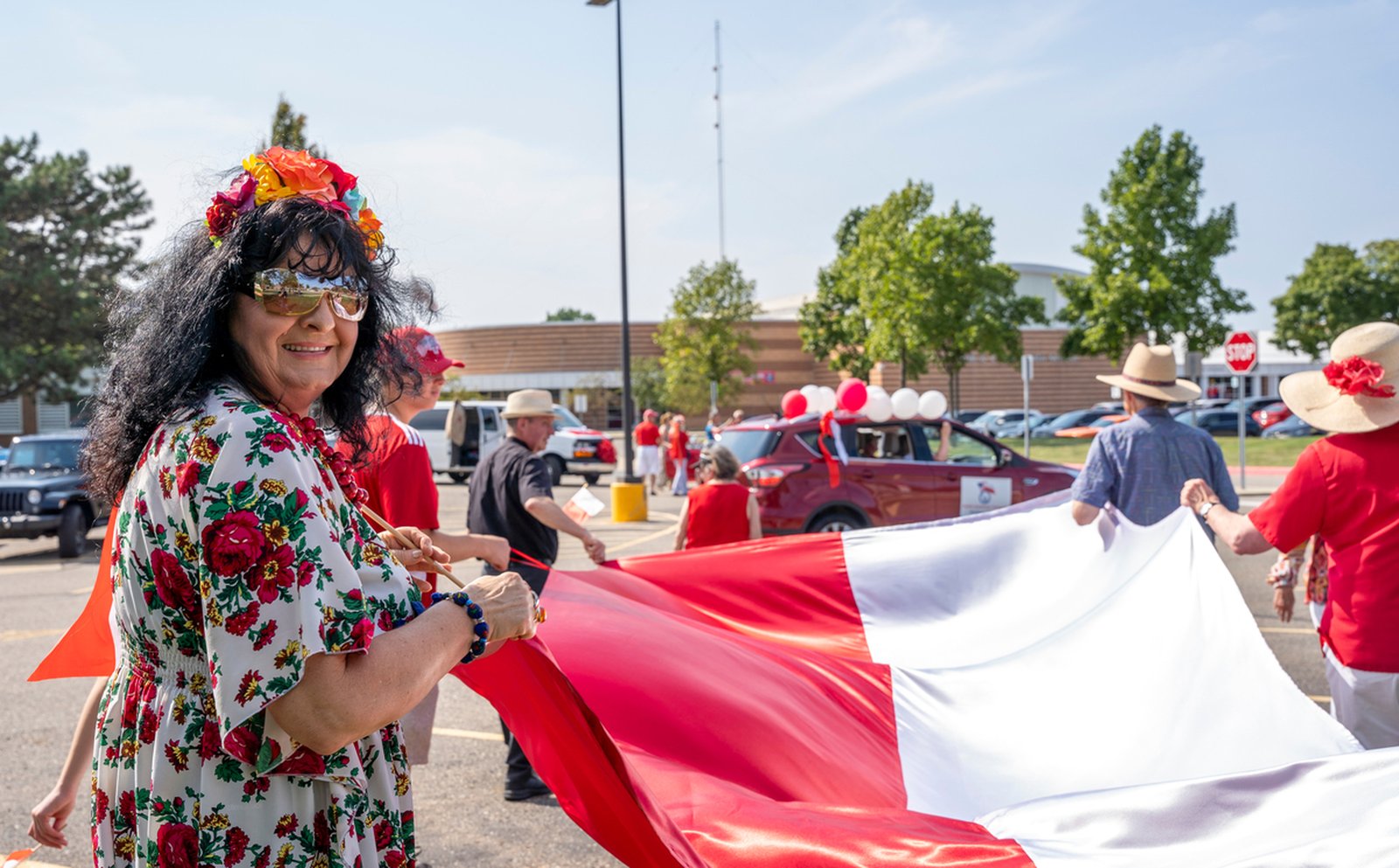
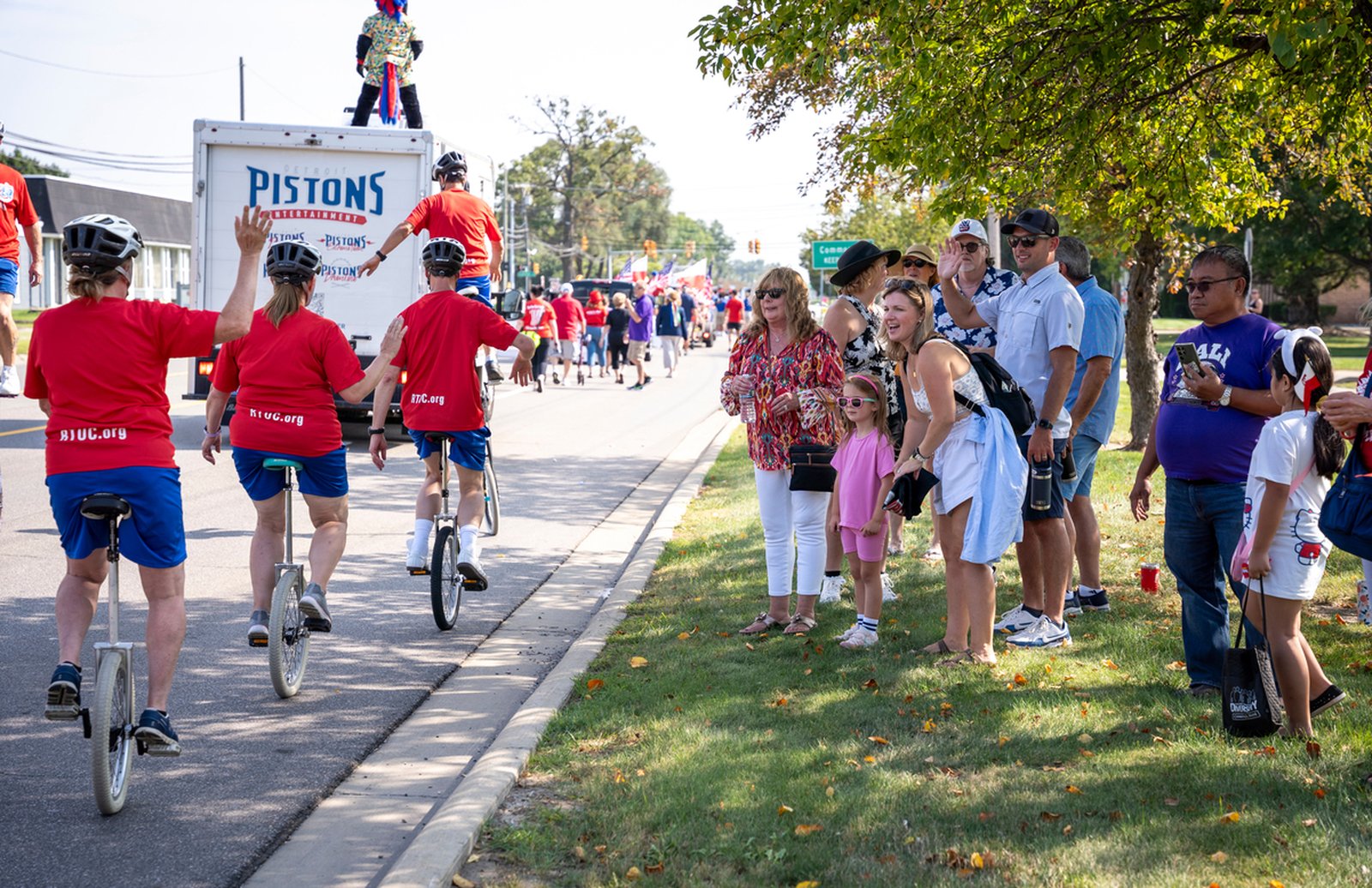
Besides Polish dance, Lisiecki said the group teaches other Polish customs, such as the Christmas Oplatek, a traditional Christmas wafer shared at Wigilia (Christmas Eve) and Polish customs for Easter and Palm Sunday.
"Beyond the song and dance, we show the next generation how to live out their Polish heritage,” Lisiecki said.
For those who don’t know the language or dance moves, the Polish Day Parade still retains its party atmosphere. Parade-goers lining the streets were decked out head to toe in red and white, listening to Polka music as parade participants made their way down Common Road, toward the Warren Civic Center, where there was a review stand where each participant was recognized.
For parade organizers like Bankowski, the Polish Day Parade is an opportunity to celebrate the generations of Polish-Americans who persevered to bring their faith, language, dance, music and customs to America, making the country all the richer spiritually and culturally.
“We have a history that’s worth celebrating,” Bankowski said. “Today is all about a celebration of our heritage, what we take pride in, and exposing younger people to this who might be second-, third-, fourth-generation Polish decent, to recognize them as part of our community and to let the larger community know about us.”
Copy Permalink
Consecrated life












